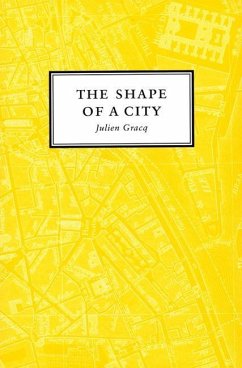Julien Gracq, the most important writer in France, is also the only living writer whose complete works appear in a volume of the prestigious Pleiades editions. The most original of his later works is this book about Nantes, which is Gracq's personal and profound response to Proust's synthesis of memory, reverie, and realism.
The work begins with a quote from Baudelaire: "The shape of a city, as we all know, changes more quickly than the mortal heart." The author writes of a child's experience of the hierarchy of urban spaces: the radial avenues walked during school recreation periods, the districts between the axes, and the relationship to Nantes of those who lived there, including Breton and Rimbaud.
Dieser Download kann aus rechtlichen Gründen nur mit Rechnungsadresse in A, D ausgeliefert werden.









